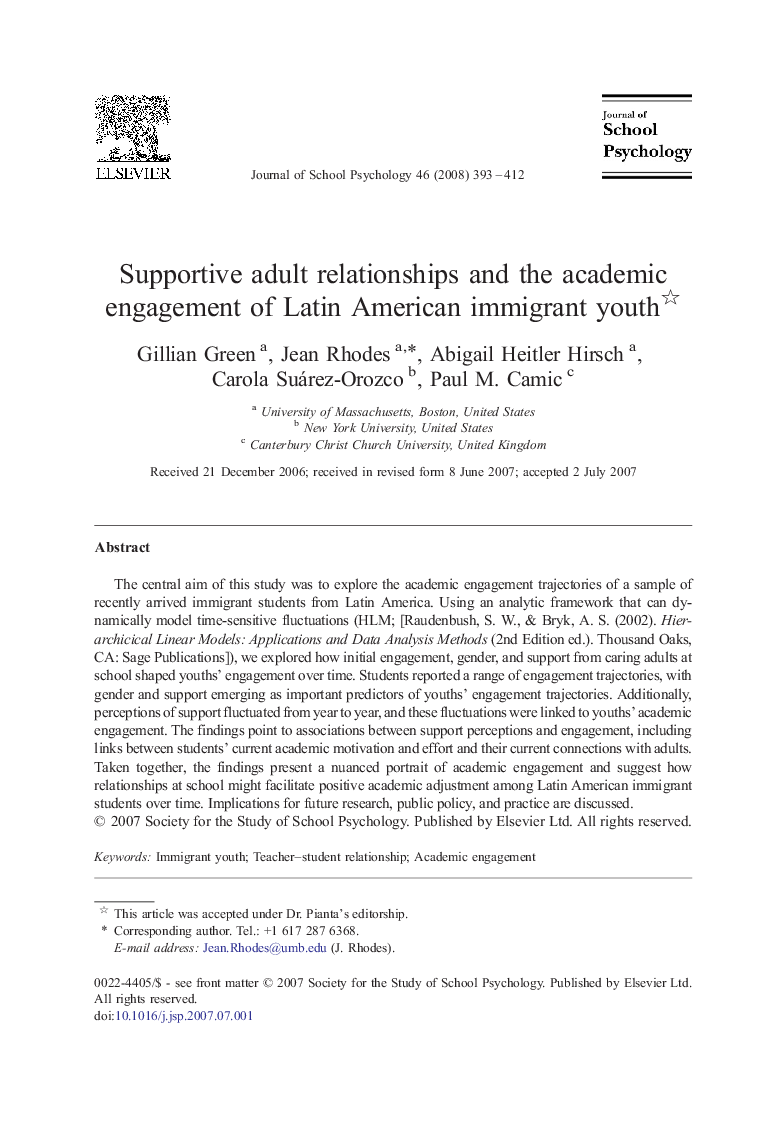| Article ID | Journal | Published Year | Pages | File Type |
|---|---|---|---|---|
| 363736 | Journal of School Psychology | 2008 | 20 Pages |
The central aim of this study was to explore the academic engagement trajectories of a sample of recently arrived immigrant students from Latin America. Using an analytic framework that can dynamically model time-sensitive fluctuations (HLM; [Raudenbush, S. W., & Bryk, A. S. (2002). Hierarchicical Linear Models: Applications and Data Analysis Methods (2nd Edition ed.). Thousand Oaks, CA: Sage Publications]), we explored how initial engagement, gender, and support from caring adults at school shaped youths' engagement over time. Students reported a range of engagement trajectories, with gender and support emerging as important predictors of youths' engagement trajectories. Additionally, perceptions of support fluctuated from year to year, and these fluctuations were linked to youths' academic engagement. The findings point to associations between support perceptions and engagement, including links between students' current academic motivation and effort and their current connections with adults. Taken together, the findings present a nuanced portrait of academic engagement and suggest how relationships at school might facilitate positive academic adjustment among Latin American immigrant students over time. Implications for future research, public policy, and practice are discussed.
